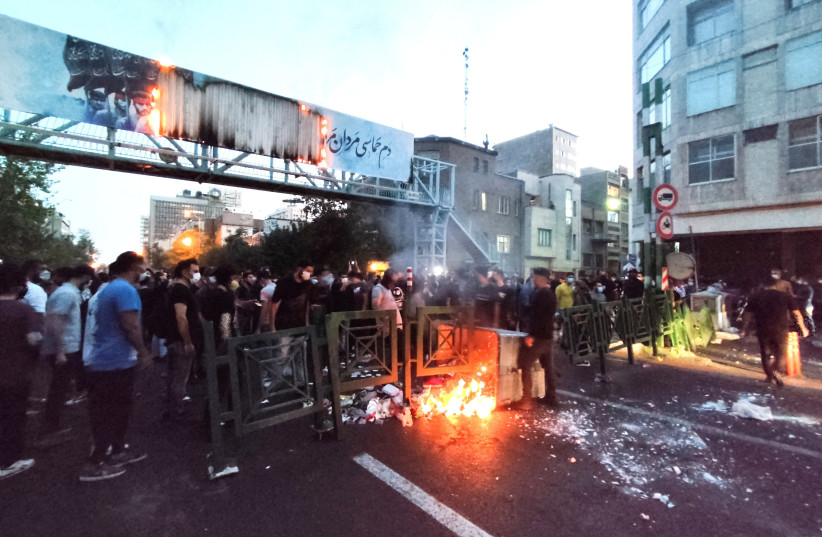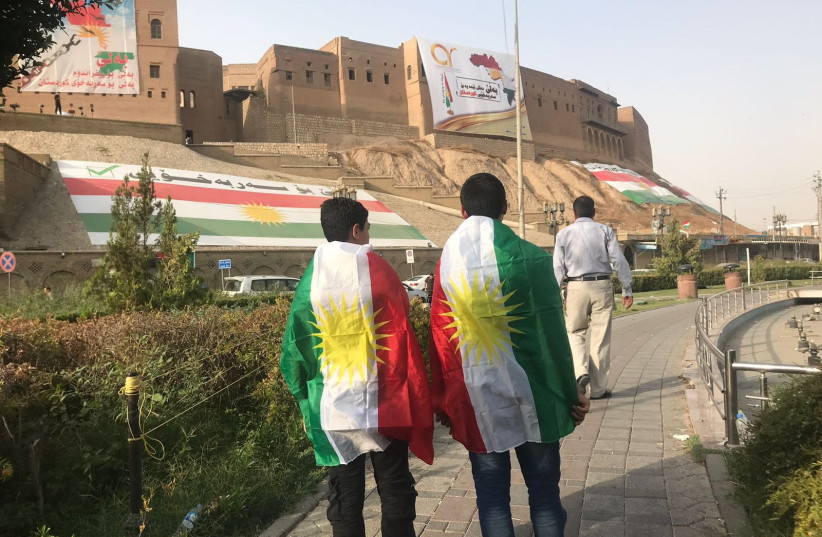Iran's Revolutionary Guards accused a Sunni cleric of agitating against the Islamic Republic and warned it may cost him dearly after he said officials including the supreme leader were responsible for dozens killed in the city of Zahedan last month.
Amnesty International has said security forces killed at least 66 people in a crackdown after Friday prayers in Zahedan, in the southeast, on September 30, some of the deadliest unrest during five weeks of protests ignited by Mahsa Amini's death.
Molavi Abdolhamid, Zahedan's leading Sunni cleric, said during his Friday sermon that officials including Supreme Leader Ayatollah Ali Khamenei, head of the Shi'ite-dominated state, were "responsible before God" for the Sept. 30 killings.
A short statement on Sepah News, the Revolutionary Guards official news site, said: "Mr. Abdolhamid, encouraging and agitating youths against the sacred Islamic Republic of Iran may cost you dearly! This is the last warning!"
The protests ignited by the death of Amini, a 22-year-old Iranian Kurd who died after being detained by morality police for "inappropriate attire," have posed one of the boldest challenges to the Islamic Republic since the 1979 revolution.

Though the protests do not appear close to toppling the government, unrest has swept the whole country including areas home to ethnic minorities with long-standing grievances against the state.
Zahedan is the provincial capital of the Sistan-Baluchistan province of southeastern Iran at the border with Pakistan and Afghanistan, home to the Baluch ethnic minority.
State media said at the time of the Sept. 30 violence that "unidentified armed individuals" opened fire on a police station, prompting security forces to return fire.
The Revolutionary Guards said five members of its forces and the volunteer Basij militia were killed during the Sept. 30 violence. Authorities blamed a Baluchi militant group. Neither that group nor any other faction claimed a role.
MORE PROTESTS
After protests erupted in Zahedan again on Friday, deputy interior minister for security, Majid Mir Ahmadi, said calm had returned, official news agency IRNA reported on Saturday.
He said 150 "thugs attacked public property and even those shops belonging to Sunnis."
On Friday, police arrested at least 57 people, described as "rioters," after protesters threw rocks and attacked banks in the city, provincial police chief Ahmad Taheri was quoted as saying by the official news agency IRNA on Friday.
State television said up to 300 protesters marched in the city after Friday prayers. It showed banks and shops with smashed windows.
Abdolhamid, the Sunni cleric, described the Sept. 30 killing as a massacre, saying bullets had been fired at heads and chests. "Scores were killed here. I don't have the exact number. Some have reported 90, some say less, some say more," he said in the sermon posted on his website.
Rights groups say the government has long discriminated against ethnic minorities including the Kurds, in whose region unrest has also been particularly intense since Amini's death.
The state denies accusations of discrimination.

Iran has blamed unrest on an array enemies including armed dissidents. The Revolutionary Guards have attacked bases of armed Iranian Kurdish groups in neighboring Iraq.
Protesters have sought stress national unity with chants expressing solidarity between various ethnic groups.
Rights groups Hengaw reported that shopkeepers had gone on strike on Saturday in the provincial capital of Iran's Kurdistan province, Sanandaj, and Saqez - Amini's hometown, in addition to Bukan, another northwestern city.
The activist news agency HRANA reported on Friday that 244 protesters had been killed in the countrywide unrest, including 32 minors. State TV has reported the deaths of at least 26 members of the security forces during the unrest.
